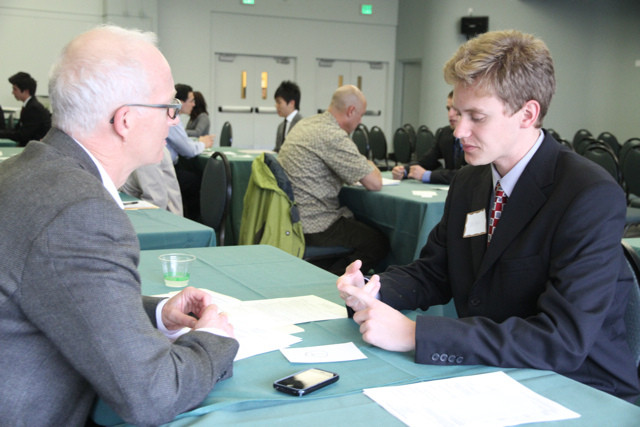"My brother ... is an incredible officer with a track record of out performing his officer peers and producing excellent results. I have been really surprised to see how luke warm the response has been during his transition. He gets very little credit for all that he has accomplished as an officer, and dinged for "not enough experience" way too frequently. Are you seeing the same thing?"
I saw this question in a LinkedIn discussion and found it relevant to any veterans experiencing tepid responses from companies in which they are interested.
Want to learn how to negotiate your salary effectively? Click below.
This would be my response if I could talk to his brother:
One thing missing in all the hire vets initiatives in the civilian sector is appropriately recognizing how military experience translates into civilian skills. It is really up to the veteran to communicate that to any potential employers. And with any form of communication, the onus is on the communicator to get his message across. When I was interviewing, I had to forget about how I viewed my experiences in the military. These significant accomplishments didn't matter if the person interviewing me did not have a good yardstick by which to judge those experiences. Interviewing with companies that have experience in hiring and developing veterans definitely helps to bridge that gap -- which is my I recommend to anyone to at least try services of recruiting companies to test the waters.
Another strategy I would suggest for your brother is to constantly tie his military experience to how it fits the position for which he is interviewing. Talking about prior outstanding performance is not enough. I currently work in medical device sales, but I didn't have common (to my employer) experiences in healthcare or sales. I focused on three things to make me a viable candidate.
1. Interest in technology. I was an engineering major, and in my work in the military, I frequently employed and maintained complex equipment. I drove this home by talking about how much I enjoyed this aspect of my career and how I would quickly take to the medical device industry for this very reason.
2. Desire to serve. When I talked about why I was interested in the healthcare industry, I related my desire to serve customers and patients to my desire to serve in the military. I like helping people. Simple as that, but it showed that my interest in healthcare wasn't because that just happened to be my next interview at the career conference (even though it was ; )).
3. I "sold" all the time in the military. This one might have been more of a stretch, but I talked about how, as a leader, I was constantly solving problems by getting feedback, understanding needs and constraints, and implementing solutions by gathering support throughout the organization. Isn't that what a salesperson has to do?
So while my background didn't necessarily fit what the interviewer was looking for, I tried to make it obvious that I was exactly what they needed.
Didn't mean to make this all about what I did, because it was really an amalgam of what I learned from other vets, but I think it helps to illustrate what your brother is up against. He is an outstanding candidate -- I have no doubt. He may just have to get creative to turn a lukewarm response into an excited one. Most companies don't get how valuable and translatable military skills can be for their business, but I don't see it as their fault. The awesome thing about being in the military is that only those who served understand what you went through. It's hard to get outsiders to understand that. Better to figure out how you fit the needs of the company and then make it really, really, really obvious for them.

